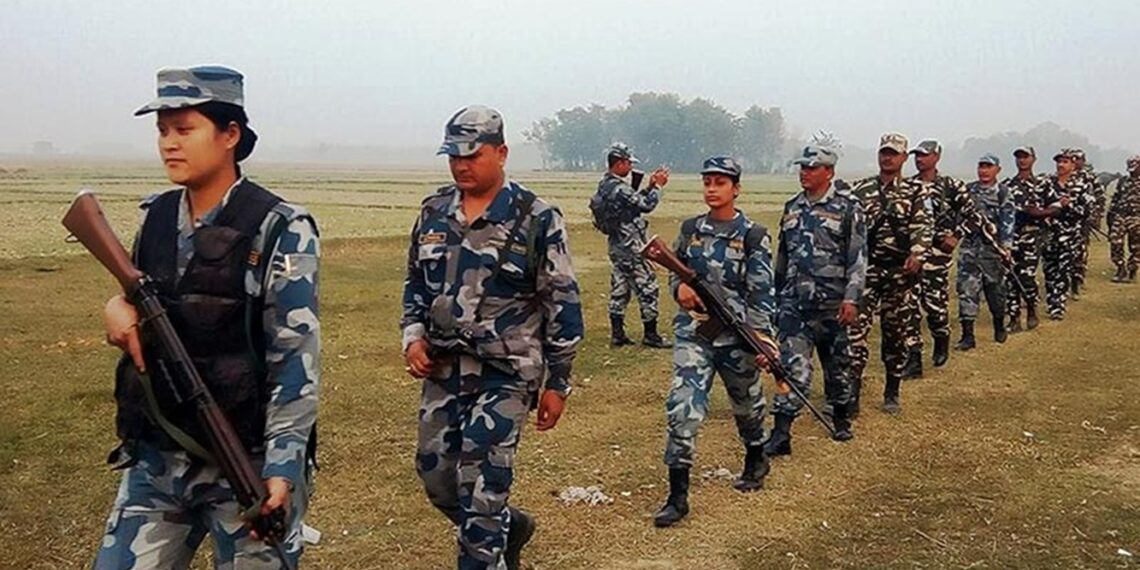New Delhi: After establishing deep roots in Bangladesh, Pakistan’s Inter-Services Intelligence (ISI) is now eyeing Nepal as its next operational frontier, with Indian intelligence agencies flagging growing signs of infiltration, radicalisation, and covert infrastructure development near the Indo-Nepal border.
According to a recent intelligence assessment, the ISI is working to expand its footprint in Nepal by increasing the number of Pakistani nationals residing there, many of whom are suspected to be sleeper agents or potential recruits for anti-India operations.
Officials warn that the move could mark a shift in the subcontinental security landscape, potentially turning the peaceful Himalayan nation into a launchpad for cross-border terror.
A report in Bangladeshi vernacular daily Purbokone highlighted one such development—the construction of the Razzak Mosque in Inarwa near Biratnagar, Sunsari district.
The mosque is being built by the Alhaj Shamshul Haque Foundation, also known as the Ash Foundation, which has its roots in Bangladesh and was formally registered as an NGO in 2022.
The mosque’s foundation stone was laid on July 18 by the foundation’s chairman, Engineer Muhammad Nasir Uddin.
During the ceremony, Uddin described the project as a “spiritual and communal centre” aimed at serving local Muslims and promoting Islamic outreach among Nepal’s 95% non-Muslim population.
Intelligence sources believe this project, while presented as a social and religious initiative, may also serve as a logistical base for ISI-backed activities in the region.
Indian officials claim that the mosque’s construction is being covertly supported by the ISI, with additional backing from entities in Gulf nations and Turkey.
The foundation has publicly appealed for donations to fund not just the mosque but similar religious and cultural infrastructure projects across Nepal and neighbouring countries—a move security agencies fear may be a cover for a broader transnational jihadist network.
Sources in the Intelligence Bureau point to a strategic pattern in the ISI’s expansion, mirroring its playbook from other regions such as parts of Africa and Southeast Asia.
The tactic involves establishing religious and cultural centres that double as hubs for intelligence-gathering, ideological radicalisation, and recruitment.
“The intent seems clear,” said a senior intelligence official.
“Use religious outreach to mask demographic engineering and extremist propagation. If not curbed early, this can destabilise the social fabric of Nepal, much like the ongoing concerns in India’s Northeast and parts of West Bengal.”
Security concerns have heightened since the change in regime in Bangladesh, with the new government under Jamaat-e-Islami-backed Muhammad Yunus seen as providing Pakistan greater leeway.
With Sheikh Hasina’s departure, Indian agencies believe the ISI is accelerating its plans to turn both Bangladesh and Nepal into strategic bases for proxy operations targeting India.
While Nepal has historically remained free of religious terrorism, intelligence reports from 2023 indicated that terror outfits like Al Qaeda had attempted to establish training camps in the country.
ALSO READ: Assam: Kaziranga’s tiger population rises to 148, now among world’s densest reserves
Additionally, Nepal has often served as a transit corridor for terrorists infiltrating into India and a haven for operatives seeking to avoid detection.
With evidence of coordinated efforts to alter Nepal’s religious demography, Indian intelligence agencies have raised red flags, cautioning that the region could soon become vulnerable to the kind of sectarian violence and instability seen elsewhere.
“There is a clear attempt to undermine a Hindu-majority nation by planting radical influence,” an official said.
“It’s a dangerous game—one that aims to sow unrest, provoke communal tension, and ultimately destabilise the region.”















